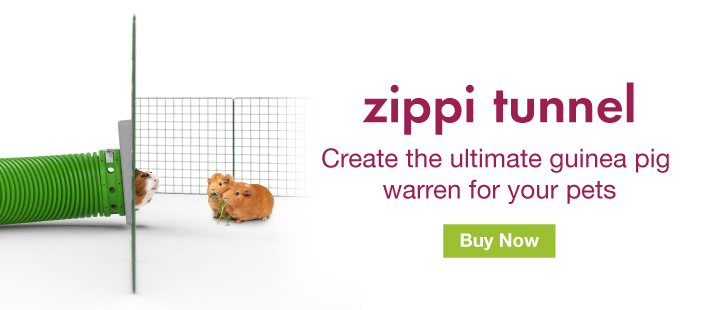Guinea pigs can eat a wide variety of plant-based foods. In captivity you have to know what's good for them and what isn't, as they don’t always know good from bad when it comes to fruit and veg. They can develop upset stomachs or serious illness if they eat something they shouldn’t.
Grass For Guinea Pigs
Fresh grass is a guinea pig favorite. It is an important part of their feeding regime, but you need to check for dangerous plants when feeding fresh grass. It's best to avoid garden-mown grass as this can contain fungi and concealed poisonous plants - buttercups and daisies, for example. It may also cause the potentially fatal condition known as bloat.

Grass is a guinea pig staple
This foodstuff must therefore be sourced from clumps of relatively tall grass, where you can see exactly what you're picking. Or, if the GPs are grazing outside, check the grass patch thoroughly before letting them start nibbling.
Hay For Guinea Pigs
Hay is the best way of feeding grass, and is so important for guinea pigs nutritionally that it needs this separate section! They should have access to this foodstuff in plentiful supply at all times. It provides essential nutrients, gives plenty of fibre to aid GP digestion, and acts as bedding too. Indispensable!

Hurray for hay! Guinea pigs need this for both food and bedding
Fresh Fruits And Vegetables For Guinea Pigs
Vegetables, and some fruit, are essential elements of the guinea pig diet. They provide key nutrients they need, including the all-important vitamin C. Salad veg isn't ideal, as this is usually watery, filling the stomach without giving enough nutrition (and sometimes causing stomach upsets if too much is eaten).
Each guinea pig need about one cup of fresh vegetables a day. Fruit should be fed sparingly, as it’s quite acidic, and can cause sores around the GP's mouth if overfed. For more information, have a look at our Guinea Pig Foods List page.

Lots of veg, minimal fruit - that's the correct balalnce for guinea pigs
Dry Food For Guinea Pigs
Pet stores stock a wide range of suitable dry foods for guinea pigs. Make sure the one you choose is formulated specifically for GPs. The dry food will be fortified with added vitamins and minerals, but if you’re worried about providing your guinea pigs with enough vitamin C, rely on fresh veg to provide it.
Guinea pigs should be given fresh dry food every day, and the bowls will need cleaning weekly, to prevent the dry food forming sticky and eventually mouldy patches inside.
Water For Guinea Pigs
Guinea pigs need to have access to fresh water at all times. If you give GPs a water bowl, they will tend to sit in it and therefore soil it, and/or tip it over, soaking their bedding and other food.
The bottle will need to be cleaned regularly, as food from their mouths tends to get into the spout and the water, dirtying it quickly.






Comments
There are no comments just yet